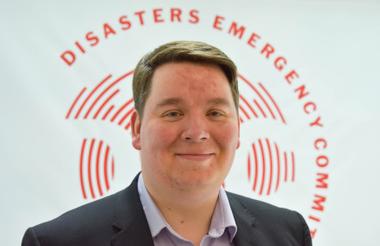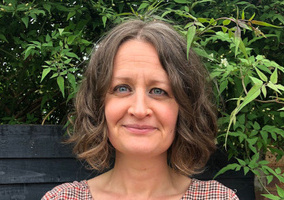Last week, the Disasters Emergency Committee (DEC) was awarded a Guinness World Record for the most amount of money raised by an online campaign in one week.
Its Ukraine Humanitarian Appeal has raised over £300m in just over two months, with donations still coming in.
Since then, DEC has outlined that the funds raised will be spent over a period of three years, and provided a breakdown of how £74.5m will be spent in the next six months.
Simon Beresford, director of fundraising and marketing at DEC, stressed the importance of communicating how the funds from the Ukraine appeal will be spent.
'Huge expectations' on how funds will be spent
He said: “For the Ukraine appeal there’s been huge public attention, rightly so, and there will be huge expectations on the back of that.”
DEC is actively working to communicate how funds are spent to the public, and Beresford feels this is something the charity sector needs to improve on.
He continued: “I think we need to get better as a sector and think more about how we report back to the public on what we’ve done with their money, not just how we communicate asking for it in the first place. There’s some real gaps there in terms of our overall sector output, and DEC is certainly thinking about that.”
Beresford said that the sector, with DEC included, is very good at going above the line when asking for funds but going below the line in terms of providing feedback to donors.
He said despite it being a challenge, he feels it’s “something all charities could be thinking about for their own brand of campaign”.
‘Once in a generation’ response
The response to the DEC’s appeal, which launched on 3 March, has been “overwhelming”, Beresford said.
It is the biggest response from the public to an international humanitarian appeal since the Boxing Day Tsunami of 2004.
Beresford said: “I think it’s fair to say it’s a once in a generation type response from the public to something they are obviously seeing wall to wall on their TV screens and feel obligated to respond to. It's very humbling.”
Beresford said DEC is incredibly thankful to the public for its response.
‘None of this could have been possible without the public’
The Guinness World Record is an award for the public, Beresford said.
“None of this could have been possible without the incredible amount of media coverage of the crisis and the incredible response of the public. So really, it’s an award for the response of the public,” he said.
DEC received its first Guinness World Records title in 2004 for its fundraising for the Boxing Day Tsunami. It raised the most money online via a website when the British public donated over £10m in just 24 hours.
Money raised ‘comes with its own challenges’
The sheer amount of money raised by the appeal “comes with its own challenges, of course it does”, Beresford said.
However, the DEC, which is made up of 15 international development charities, is well equipped to handle the task, he said.
“We work with professional organisations and this is what they do. We’ve responded to conflicts over many years. We’re looking at lots of lessons learnt from those previous responses.”
Beresford said the DEC is working to ensure the money raised will be spent intelligently - not just quickly.
He said: “We want to make sure that we’re not only spending as quickly as possible in the first six months to meet people's immediate needs but also make sure we’re spending it effectively in the long term.”
During some of DEC's previous emergency disaster responses, Beresford said the pressure to spend money quickly had led to a realisation later on that money could have been spent more effectively if this pressure had been resisted. The DEC has learned from this.
Do not donate items to Ukraine appeals, DEC says
Various campaigns for people affected by the Russia–Ukraine conflict have been calling for items such as clothes, food and bedding to be sent to the warzone.
DEC actively discourages this, Beresford said, and instead is asking donors to give cash due to its flexible nature.
“What people need today isn’t necessarily the same thing they’re going to need tomorrow,” he said.
It is important DEC takes a long-term approach to helping people affected by the conflict, and cash allows them to do this.
Beresford said: “We don’t just want to be there now but we want to be there when the situation changes for people in the months and years ahead. Because of that, the best thing the public can do and we’ve been wanting to indicate this from the start of the campaign, is give cash. A cash gift can be flexible as those needs continue to change.”
Related articles











